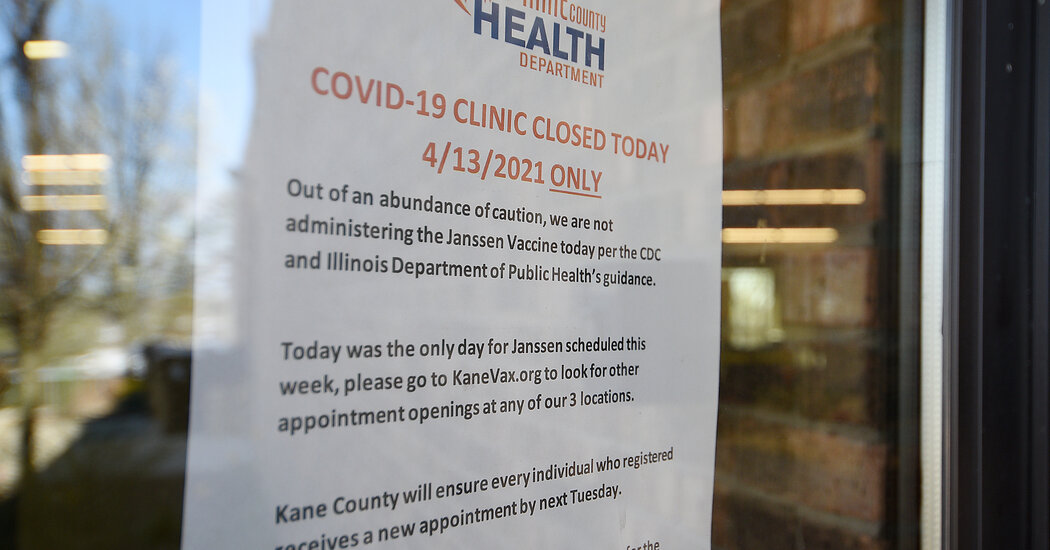
“I’ll often say the risk of getting a blood clot with birth control pills is kind of similar to having a really serious reaction to penicillin,” said Dr. Raegan McDonald-Mosley, an obstetrician-gynecologist and the C.E.O. of Power to Decide, a group devoted to reducing unintended pregnancy. She frequently discusses blood clot risk with her patients, telling them the increase in risk and the overall magnitude of that risk. Most patients, she said, select their form of birth control based on other considerations.
What You Need to Know About the Johnson & Johnson Vaccine Pause in the U.S.
-
- On April 13, 2021, U.S. health agencies called for an immediate pause in the use of Johnson & Johnson’s single-dose Covid-19 vaccine after six recipients in the United States developed a rare disorder involving blood clots within one to three weeks of vaccination.
- All 50 states, Washington, D.C. and Puerto Rico temporarily halted or recommended providers pause the use of the vaccine. The U.S. military, federally run vaccination sites and a host of private companies, including CVS, Walgreens, Rite Aid, Walmart and Publix, also paused the injections.
- Fewer than one in a million Johnson & Johnson vaccinations are now under investigation. If there is indeed a risk of blood clots from the vaccine — which has yet to be determined — that risk is extremely low. The risk of getting Covid-19 in the United States is far higher.
- The pause could complicate the nation’s vaccination efforts at a time when many states are confronting a surge in new cases and seeking to address vaccine hesitancy.
- Johnson & Johnson has also decided to delay the rollout of its vaccine in Europe amid concerns over rare blood clots, dealing another blow to Europe’s inoculation push. South Africa, devastated by a more contagious virus variant that emerged there, suspended use of the vaccine as well. Australia announced it would not purchase any doses.
Penicillin, a widely used antibiotic, causes serious allergic reactions in between one and five patients for every 10,000 who take it.
For vaccines, however, the threshold for safety is generally higher than for other kinds of medications. As many researchers have noted, Covid-19 puts people at risk of serious blood clots, too — much more so than any plausible estimate of the vaccine effect. But not everyone who fails to get vaccinated is going to get sick.
“The disease you get by chance, and the vaccine you get by choice, and that’s what makes it harder,” said Dr. Steven Black, an emeritus professor of pediatrics at Cincinnati Children’s Hospital, who studies vaccine safety.
For other vaccines, the risk of serious adverse events is much lower than for birth control pills or penicillin — they generally occur in fewer than 1 in 100,000 who receive a given vaccine. That rate is “clearly much, much less than would be tolerated for a drug,” said Dr. Nicola Klein, director of the Kaiser Permanente vaccine study center, who is involved in the Vaccine Safety Datalink study.
Most other vaccines protect against diseases that tend to be rare. By contrast, Covid-19 remains widespread throughout the United States and many parts of the world. Given the seriousness of the illness and its ease of spread, the value of vaccination may be higher now than it is when such trade-offs are usually considered.
